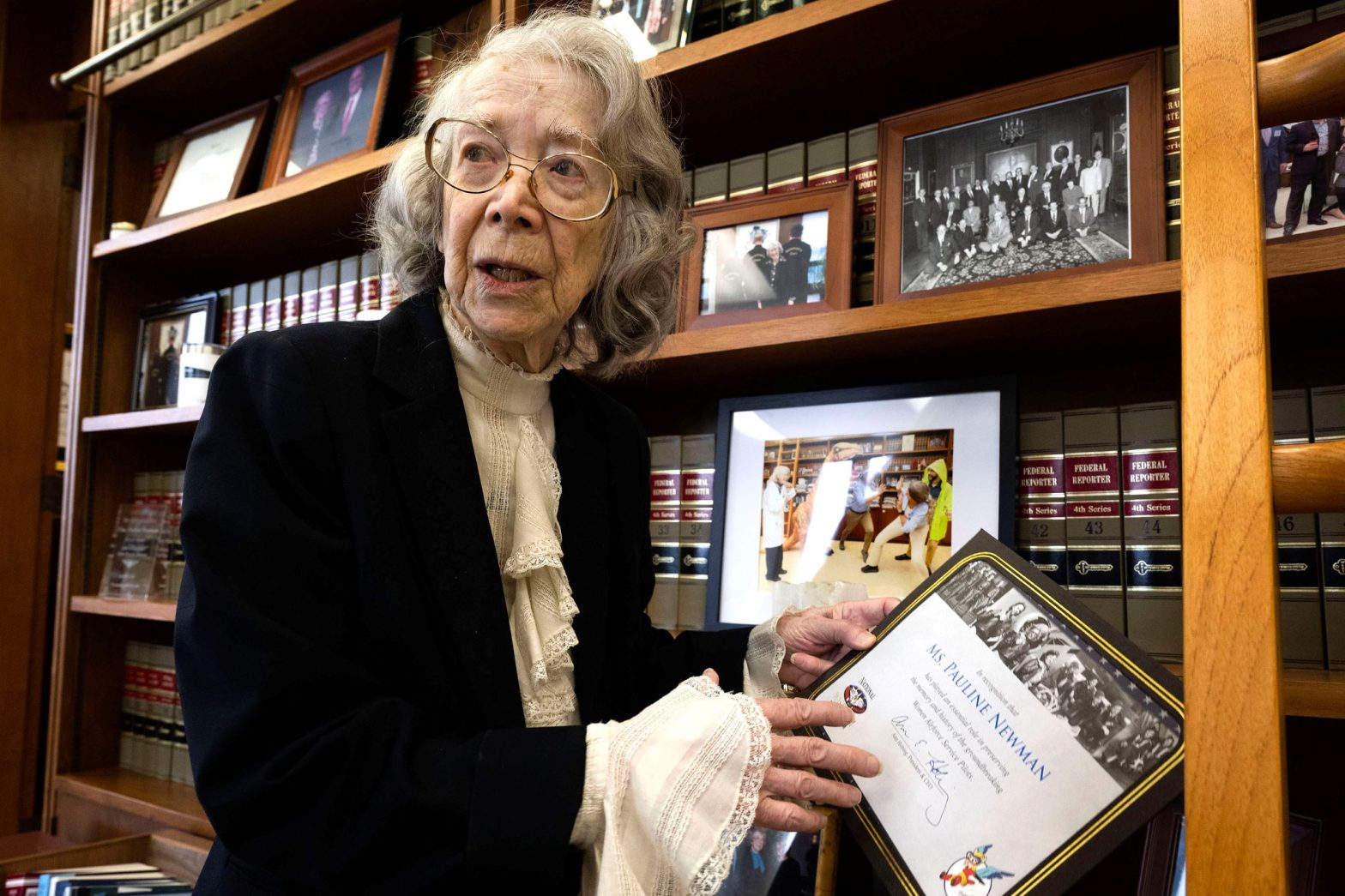Federal Judges Suspend 96-Year-Old Colleague They Say Shows Mental Decline

WASHINGTON — Judges from the Federal Circuit Court in Washington, D.C., on Wednesday suspended a 96-year-old fellow judge for one year after she refused to submit to a mental competency test.
They accused Judge Pauline Newman of misconduct for not cooperating in their investigation.
The other judges are trying to force her to retire after her colleagues complained her age is diminishing her ability to perform her job properly. Newman says the accusations are ill-founded and ageist.
They also violate her rights as a federal judge appointed by the president for life, according to her attorney.
The dispute again raises the issue of how much is too much in lifetime appointments of federal judges. Some members of Congress have proposed term or age limits but so far have run up against the need to change the U.S. Constitution before they could force judges out sooner.
A day before Newman’s suspension was announced, two congressmen introduced a bill that would set term limits of 18 years for Supreme Court justices.
Term limits are “necessary because lifetime tenure on the United States Supreme Court leads to a court that is insulated from, and unaccountable to, the American people, which is bad for democracy,” said Rep. Hank Johnson, D-Ga.
The U.S. Court of Appeals for the Federal Circuit presides over more specialized cases than the Supreme Court, such as patents, trademarks, government contracts and veterans’ benefits.
It was established in 1982, only two years before President Ronald Reagan appointed Newman to the court. It grants its judges the same lifetime tenure as the Supreme Court.
Newman quickly established herself as a fierce defender of patent rights and a prolific dissenter in court rulings.
Greg Dolin, the lead attorney in her attempt to retain her position on the court, called her a “contrarian” who often provides unique perspectives on the law. She dissents in about half the court’s opinions, compared with 5% of the time for most federal circuit judges.
“It just shows how unique her point of view is,” Dolin told The Well News.
Her colleagues, such as Chief Judge Kimberly A. Moore, say her forgetfulness, occasional flares of temper and slow pace of work in the past two years show age is taking a toll that should make Newman retire.
When Moore asked Newman to resign earlier this year, she refused. Moore then ordered the investigation of Newman’s competence, prompting the now 96-year-old to sue in May to keep her job.
Moore convened a Judicial Council for the investigation and to make recommendations. In July, the panel of judges recommended suspension. Newman has not been assigned new cases since then.
The Judicial Council said interviews with court staff demonstrated Newman’s “significant mental deterioration including memory loss, confusion, lack of comprehension, paranoia, anger, hostility and severe agitation.”
The council wrote that, “Judge Newman has been having trouble recalling events, conversations, and information just days old and having trouble comprehending basic information that court staff communicate to her.”
The order of the one-year suspension on Wednesday added, “We are acutely aware that this is not a fitting capstone to Judge Newman’s exemplary and storied career. We all would prefer a different outcome for our friend and colleague. However, we have a solemn obligation … to take action — and not to simply look the other way — when it appears that a judge of this court is no longer capable of performing the duties of her judicial office.”
Dolin said Newman already underwent examination by a neurologist and a psychiatrist. Both cleared her as fit to handle her caseload at the court, he said.
The Judicial Council said the neurologist and psychiatrist were chosen by Newman, reflecting a conflict of interest that made their report suspicious.
Newman plans to appeal the suspension to the federal courts’ Committee on Judicial Conduct and Disability, which consists of seven judges from different parts of the United States.
“It’s a principle thing,” Dolin said. “She’s appointed for life and it shouldn’t be a situation where she’s crossed some age threshold and her colleagues can push her out.”
Newman’s lawsuit is Newman v. Moore et al. in U.S. District Court for the District of Columbia.
You can reach us at [email protected] and follow us on Facebook and Twitter
























